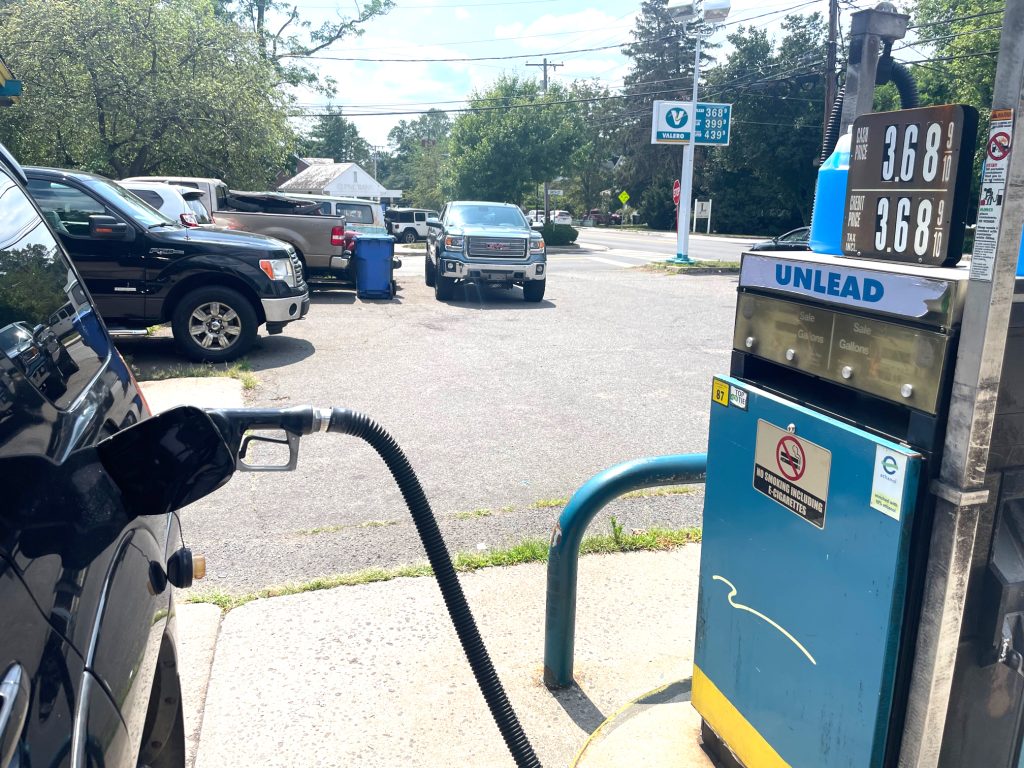
By Stephen Appezzato
New Jersey may soon be the final full-service automobile fueling sanctuary.
Recently, the Oregon state legislature approved a bill that would allow gas stations in that state to offer self-service pumps, overturning a mandate that has been in place since 1951. The bill stipulates that self-service pumps would get the OK, so long as at least half of gas pumps remain full-service. If Oregon Gov. Tina Kotek signs the bill, New Jersey will be the only state that doesn’t allow residents and visitors to pump their own gas.
Full-service gas stations existed all across the U.S. in the early half of the 20th century but as pumping technology progressed, many stations experimented with and implemented the self-service model.
In 1949, New Jersey enacted the Retail Gasoline Dispensing Safety Act, with safety concerns being the official reason for the ban on self-service pumping. But, as The Star Ledger reported in 2014, it appears corruption and aggressive lobbying efforts were the real reason for the law.
In the late 1940s, Irving Reingold, a gas station owner in Hackensack, decided to offer his customers a choice: Drivers could pay the standard rate for gasoline, which was generally based on a gentleman’s agreement between pump owners in the region, or they could pay a discounted rate if they opted to self-serve. Rapidly, Reingold’s station was swarmed with customers seeking cheaper gas. Reingold undercut the local market and fellow gas station owners were incensed.
Reingold’s success was short-lived when the Gasoline Retailers Association lobbied the state legislature to ban self-service, cloaking the bill as a consumer safety policy.
Since 1949, gas stations in New Jersey have adhered to this business model. According to the act, people who pump their own gas can be fined “not less than $50.00 nor more than $250.00 for a first offense” and “not more than $500.00 for each subsequent offense.”
By 1980, self-service pumps were the new norm in the U.S., with the majority of gas stations following the pump-your-own model.
Over time, efforts in the state legislature to overturn this act have surfaced. However, despite being a fairly nonpartisan issue, no legislation has been signed.
According to a Monmouth University poll from last year, “just over half of the public (54%) supports allowing self-service gas in the state as long as stations are still required to keep an attendant on duty for full service.” It appears full-service pumping has a place in the Garden State, as many cite the weather for not wanting to get out and fill their car.
“Being the last full-service-only state in the country seems to be a source of pride for many New Jerseyans,” said Patrick Murray, director of the independent Monmouth University Polling Institute, following the poll.
Although some still desire the ability to self-serve. Proponents argue that by offering consumers a choice, gas prices could slightly decrease as stations would not need to pay a full staff of gas attendants. Additionally, “many motorists would like the convenience of not having to wait for an attendant to do something so simple,” wrote Eric Blomgren in an email to the Two River Times. Blomgren is the director of government affairs for New Jersey Gasoline, C-Store, Automotive Association (NJGCA), a group that advocates for small businesses in the petroleum retail, convenience store and automotive repair sectors. “The government should not deny them that choice,” he said.
Blomgren also mentioned the difficulty for station owners who must find attendants amid the labor shortage. “They still find it very difficult to find employees who want to work as attendants, even at wages well above the minimum.”
Fuel Your Way NJ, another group advocating for a “hybrid fueling model” – where drivers have the option to choose self- or full-service, urges residents to contact their legislators and demand the fueling change.
State lawmakers introduced the Motorist Fueling Choice and Convenience Act last year which proposed changes to the long-implemented ban on self-service. The bill was co-sponsored by Assemblyman Gerry Scharfenberger (R-13) of Middletown; however, it remains in committee, unlikely to progress swiftly.
But as Oregon residents near the transition to the hybrid fueling model, New Jerseyans can still wait their turn.
The article originally appeared in the July 13 – 19, 2023 print edition of The Two River Times.














